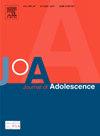The evolving impact of climate change on adolescents' health is a pressing global concern. Climate change's effects on their physical, mental, and social well-being worsen unique developmental challenges for adolescents. This study aims to map existing evidence, identify gaps, and highlight research and intervention needs.
Following Campbell standards, an evidence gap map (EGM) review was conducted. We searched for global studies on adverse climate events and adolescents aged 10–19 using five databases such as Medline, EMBASE, Global Health, CINAHL, and Scopus from September 1946 to June 01, 2023. Two independent reviewers completed the screening using Covidence software, and a critical appraisal of all included studies. EGM was developed using EPPI Mapper software, which presents a comprehensive overview of climate events and their impact on adolescents' health outcomes. This study protocol was registered in the International Platform of Registered Systematic Review and Meta-Analysis (INPLASY) (# INPLASY202410119).
We included 44 studies that explored the impact of climate change on adolescents' health. Most included studies were from Asia (35), with limited evidence from Africa, Australia, and South America (one study each). Earthquakes, hurricanes, and tornadoes were the major climate events impacting adolescents' health and well-being globally (37 studies). However, wildfires, droughts, and extreme heat got less attention. Most studies reported climate change's impact on adolescents' mental health (44), with few studies reporting the effect on physiological and psychosocial aspects of adolescents' health and well-being (10).
The systematic examination reveals significant evidence gaps, particularly in Africa, Australia, and South America, and in climate events like wildfires, droughts, and extreme heat. Most studies focus on mental health, with limited research on physiological and psychosocial aspects. These gaps highlight key areas for future research and targeted interventions at the intersection of adolescent health and climate change.



